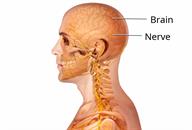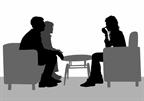Huntington's Disease

Huntington's disease, or HD, is a rare genetic condition that weakens nerve cells in certain areas of the brain. The disease gets worse over time. It affects a person's ability to walk, speak, and think.
There are two types of HD:
Adult-onset HD. This is the most common form of the disease. It usually begins when a person is 30–50 years old.
Early-onset HD. This is also called juvenile HD. It is very rare. Symptoms begin in childhood or the teenage years.
What are the causes?
This condition is caused by a change, or mutation, in the HTT gene. It is inherited, which means it is passed from parent to child.
Everyone has the HTT gene that plays a role in HD, but people who get the disease have an "expanded" gene. This means that a certain segment of the gene is longer than normal. Everyone who has this expanded segment eventually gets HD.
What increases the risk?
You may be more likely to get HD if:
You have a parent with HD.
You are of European, North American, or Australian ancestry.
What are the signs or symptoms?
Symptoms of HD worsen over time. At first, they may include:
Later symptoms may include:
Not being able to walk, move, speak, or swallow.
Worse jerking and twitching movements.
HD is also associated with mental health disorders, such as:
How is this diagnosed?
This condition is diagnosed based on:
You may also have other tests, including:
Neurological exams. These check the health of your nerves.
Psychological tests. These check your mental health.
Neuropsychological testing. This checks your memory, language, and reasoning skills.
Imaging studies of your brain, including CT scan, MRI, or PET scan.
Genetic testing.
How is this treated?
There is no cure for HD. The goal of treatment is to manage symptoms and provide the best quality of life. Treatment may include:
Taking medicines.
Seeing psychologists or counselors for emotional and mental health support.
Getting physical therapy, speech therapy, and occupational therapy to help you move, speak, and function as well as possible.
Follow these instructions at home:

Lifestyle
-
Exercise as told by your health care provider. Being physically fit can make it easier to manage your symptoms. Ask your provider what activities are right for you.
-
Talk to your provider or a dietitian about creating an eating plan. Good nutrition helps to maintain and improve health.
- Prevent falls by making your home safe. Make sure that:
Stairs have railings.
You have grab bars by the toilet and in the tub and shower.
Floors don't have any clutter on them.
Any rugs on floors are non-slip.
Hallways have good lighting.
General instructions
-
Take over-the-counter and prescription medicines only as told by your provider.
-
Have a good support system in place.
-
Consider joining a support group.
- Talk with a genetic specialist to help with family planning. Genetic testing for you and family members can help tell if you and your family members:
-
Keep all follow-up visits, including therapists and specialists. Your providers will need to see you regularly.
-
National Institute of Neurological Disorders and Stroke:
ninds.nih.gov
Contact a health care provider if:
-
You have new or changing symptoms.
-
You have more problems with memory or thinking.
-
It gets harder to speak, walk, or swallow.
-
You can't care for yourself at home.
-
You feel depressed.
These symptoms may be an emergency. Take one of these steps right away:
-
Go to your nearest emergency room.
-
Call 911.
-
Call the National Suicide Prevention Lifeline at 1-800-273-8255 or 988.
-
Text the Crisis Text Line at 741741.
This information is not intended to replace advice given to you by your health care provider. Make sure you discuss any questions you have with your health care provider.

